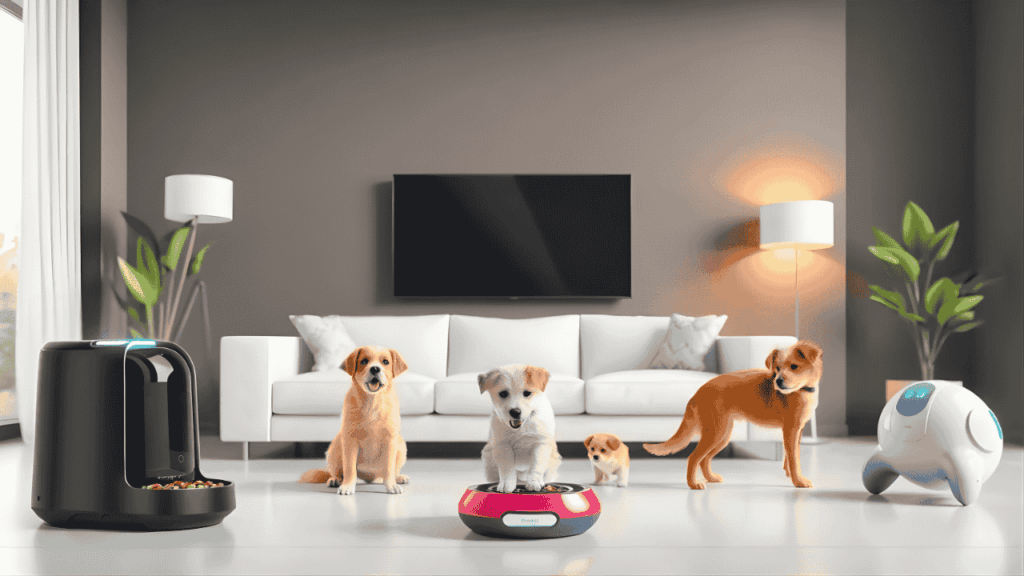In recent years, many American millennials have been delaying having children, and one notable trend is the increasing prioritization of pets, especially dogs. For a generation navigating economic pressures, urban living, and shifting lifestyle values, dogs have become an alternative source of companionship, emotional support, and fulfillment. Dogs offer immediate connection, loyalty, and affection without the long-term commitment and financial burden associated with raising children. Millennials are redefining what family looks like, often choosing pets as a central part of their lives. Surveys from U.S. pet organizations reveal that millennials are more likely than previous generations to consider pets as family members, giving them a significant role in their daily routines and future planning.
How Economic Factors Influence Millennials’ Decision to Delay Parenthood
One of the strongest drivers behind this trend is economic reality. Many millennials face high student loan debt, rising housing costs, and unpredictable job markets. Raising a child in the U.S. can cost hundreds of thousands of dollars, from healthcare to education and everyday living expenses. Dogs, while still a financial responsibility, are often more manageable in comparison. Pet ownership allows millennials to experience the nurturing aspects of family life without the immense financial strain. Experts note that these economic pressures have reshaped priorities, encouraging younger adults to seek fulfillment through pets before committing to the demands of parenthood.
When Lifestyle Preferences Make Dogs a Better Fit
Millennials often live in urban areas or apartments where raising children can be logistically challenging. Dogs, especially smaller breeds, fit well into city life and offer companionship without the need for large homes or extensive childcare arrangements. Travel, social activities, and career ambitions also play a role; dogs are adaptable companions for those with dynamic lifestyles, while raising children requires a more fixed schedule and long-term planning. Millennials value flexibility, and pets provide a way to balance responsibility with freedom. By integrating dogs into their lives, millennials can enjoy emotional support, routine, and social interaction without compromising personal goals.
What is the Emotional Appeal of Dogs Compared to Children
Dogs provide unconditional love, companionship, and stress relief. Many millennials turn to pets during periods of high stress, uncertainty, or social isolation. Unlike children, dogs offer consistent emotional support and immediate gratification in their interactions. Mental health awareness is also more prominent among this generation, and owning a dog has been shown to reduce stress, lower blood pressure, and improve overall well-being. For millennials navigating careers, relationships, and urban living, dogs meet emotional needs that children might address decades later. This emotional appeal is a key reason why pet parenthood has become an attractive alternative to traditional family-building.
How Social Trends Encourage Pet-Centric Lifestyles
Social media and cultural trends have also contributed to this shift. Millennials are active online, sharing their experiences and creating communities around pet care, adoption, and lifestyle integration. Dogs are not only companions but also social facilitators, connecting owners with other pet lovers and fostering a sense of community. Pet-friendly workplaces, cafes, and travel options further normalize and support a pet-centered lifestyle. As these trends gain popularity, millennials feel less societal pressure to follow traditional paths, reinforcing the choice to prioritize dogs over immediate parenthood.
When Health and Personal Readiness Influence Timing
Another factor is personal health and readiness. Raising children requires physical, emotional, and mental preparation, which many millennials may not feel ready to meet. Dogs provide an intermediate level of responsibility, helping individuals practice caregiving skills, time management, and household routines. This gradual increase in responsibility can act as preparation for future parenting, allowing millennials to assess their lifestyle and readiness before making long-term commitments. Veterinarians and pet behavior experts also emphasize that owning a dog can instill empathy, patience, and nurturing habits, which indirectly benefits future family planning.
What is the Impact on Dog Ownership Trends in the U.S.
The millennial preference for dogs has had a significant effect on U.S. pet ownership trends. Statistics show that millennials now account for a substantial portion of new pet adoptions, particularly in urban centers. Pet-focused businesses, from boutique pet food to dog-friendly housing, are thriving due to this demographic shift. Veterinarians, pet trainers, and boarding services have seen increased demand as millennials invest more in their pets’ health, well-being, and enrichment. This trend reflects a broader cultural shift where dogs are not merely pets but integral members of the family unit, influencing how homes, communities, and consumer markets are designed.
How Delaying Parenthood for Dogs Affects Long-Term Family Planning
While millennials are delaying children for dogs, it does not necessarily mean they are forgoing parenthood entirely. Many view this stage as a preparatory period that allows them to build careers, stabilize finances, and cultivate emotional resilience. Dogs serve as a bridge, providing a fulfilling, family-like experience without the full responsibilities of raising children. Experts suggest that this approach may lead to more thoughtful, deliberate family planning in the long term, with millennials entering parenthood later but with greater readiness and resources.
When Societal Norms and Expectations Are Shifting
Cultural attitudes toward family and pets have evolved. Millennials are less influenced by traditional timelines for marriage and childbearing, focusing instead on personal fulfillment, emotional well-being, and lifestyle alignment. As society becomes more accepting of nontraditional family structures, millennials feel validated in delaying children in favor of pets. This change challenges long-standing assumptions about adulthood and family responsibilities, highlighting a generational shift toward prioritizing quality of life and emotional satisfaction over societal expectations.
What is the Future of Pet Parenthood Among Millennials
The trend of delaying children for dogs is likely to continue as long as economic pressures, lifestyle preferences, and cultural attitudes remain. Millennials have reshaped the pet industry, urban planning, and social norms around family. Dogs provide companionship, emotional support, and flexibility, making them an ideal choice for a generation navigating complex realities. Pet parenthood will continue to influence how millennials approach long-term planning, relationships, and household dynamics. As more millennials integrate pets into their vision of family, dogs are no longer just animals but essential partners in shaping modern American lifestyles.
By understanding why millennials prioritize dogs, it’s clear that economic, emotional, and social factors are reshaping traditional notions of family. Dogs provide companionship, responsibility, and emotional fulfillment, making them a perfect choice for a generation navigating modern challenges. This trend reflects deeper societal shifts that redefine what it means to have a family in the United States.







